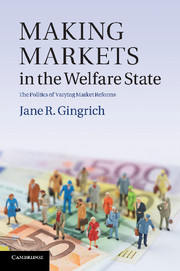5 - EDUCATION MARKETS
Published online by Cambridge University Press: 05 July 2011
Summary
The reform of education has provoked some of the fiercest clashes in modern times – among defenders of the Church and the state, hierarchy and a classless society, racial segregation and integration, the center and the periphery. The politics of education has been so divisive in part because of the promise education offers to shape how society changes. The debate over markets in education is no exception, with proposals to introduce everything from school vouchers, to Charter schools, to private companies providing education services, provoking intense political and scholarly conflict. For proponents of markets, competition is “the tide that lifts all boats,” promising to improve equity and efficiency in the public sector (Hoxby 2003). Critics have been equally fierce in their opposition to markets, claiming they substitute the private good of a few for the public good of many (Molnar 1996; Apple 2001a).
In contrast to the grandiose claims by proponents and opponents of markets in education about their impact on equity, achievement, and costs, this chapter argues that there is considerable diversity in how markets in education work. Early market reforms in England and the Netherlands expanded choice in the publicly funded school system, both strengthening the state and devolving power to parents. The result was increased competition among schools to appeal to parents, while also placing more responsibility on parents (Two Tier market).
- Type
- Chapter
- Information
- Making Markets in the Welfare StateThe Politics of Varying Market Reforms, pp. 131 - 174Publisher: Cambridge University PressPrint publication year: 2011

